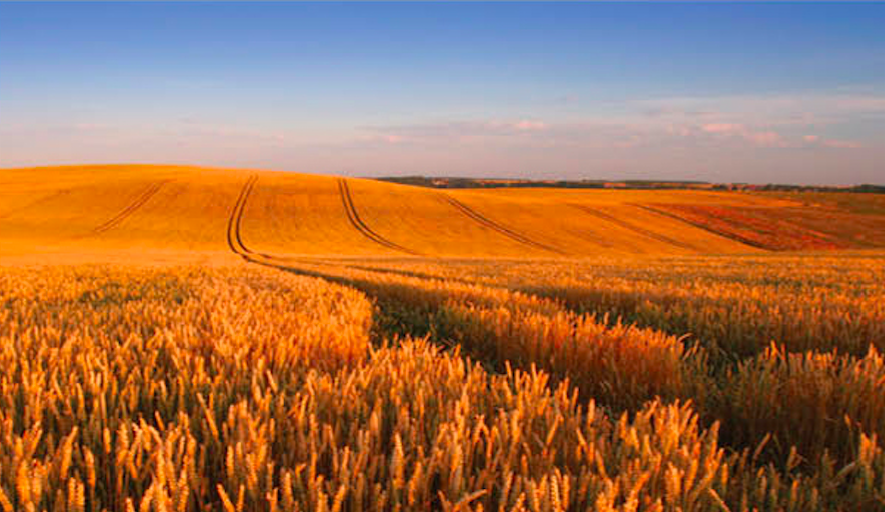Throughout Champaign County, nearly 35,000 people have limited availability to nutritionally adequate and safe foods. University of Illinois Extension Serving Champaign, Ford, Iroquois, and Vermilion County has developed a partnership with the ADM Institute for the Prevention of Postharvest Loss to help address this need within local communities and to serve as a catalyst for change in underdeveloped communities across the globe. Through the Postharvest Green Technologies for Urban Farms project, Extension and ADM Institute plan to reduce postharvest loss for urban growers in Champaign County while making the research available for national and international uses, ultimately increasing food availability on a global scale.
Postharvest Green Technologies for Urban Farms is a two-year research and development project that aims to minimize postharvest loss while revitalizing urban land through specialty crop production. Proper washing, grading, packaging, and refrigeration are essential for many crops. After a decade of food-borne illness outbreaks and safety problems, Congress passed the Food Safety Modernization Act (FSMA) in 2011. As the FDA moves closer to implementation of FSMA, training in the new food safety rules, including washing and refrigeration, will be a necessity for proper food production throughout the nation.
Throughout the next two years, experts at two sites in Champaign County will research, implement, and teach best practices for food harvesting. These sites include Prosperity Gardens, a community garden project on reclaimed urban property in a low income food desert, and Chanute Fields, a farm incubator for beginning specialty crop farmers and local high school students.
Prosperity Gardens, a Champaign non-profit, was created in 2010 to address the problems of food insecurity, limited nutrition knowledge, and work force development in Champaign. It is a teaching site for local high school students and provides low-cost, locally grown produce for the surrounding food desert. The garden accepts WIC coupons and SNAP benefits, and each Wednesday offers a ‘pay-what-you-can’ market.
Chanute Fields utilizes land at the former Chanute Air Force Base to encourage specialty crop production and the establishment of a local food hub. The fields offer acreage for rent to specialty growers and a storage bay in the Rantoul Business Center for food hub facilities. Chanute Fields partnered with Rantoul High School to train 50 students in all aspects of produce production, packing and processing in 2014.
Through the Postharvest Green Technologies for Urban Farms project, project participants at these two locations will research, develop, implement, and teach others to use a mobile wash station and a mobile cooling station to extend crop availability through proper washing and packing for long term storage and sale. The portable vegetable wash station will be built on a trailer to allow on-site washing and drying, and the portable cooling trailer will allow farmers to remove field heat from vegetables. The stations will increase availability of locally-grown foods in each community by limiting postharvest spoilage and by providing proper methods for prepping and storing harvested crops.
In addition to providing a stable method of reducing postharvest loss, the mobile wash station and cooling units will allow Prosperity Gardens and Chanute Fields to:
- Support year-round production goals, in turn serving Champaign-Urbana on a much larger scale
- Process up to 30,000 pounds of produce a year at Prosperity Gardens
- Provide educational and vocational experiences for at-risk youth
- Create hands-on research opportunities for University of Illinois students and faculty
- Demonstrate affordable options for handling produce for specialty and urban growers
- Teach and emphasize good agricultural practices from the new Food Safety Modernization Act
Once the mobile wash station and cooling units have been implemented at Prosperity Gardens and Chanute Fields, University of Illinois Extension and ADM Institute plan to make the research and development available on a national and international scale. It is hoped that poor communities across that United States will be able to utilize similar structures where they experience their own food deserts, enriching the diets of residents. Additionally, as these structures will provide cost-effective ways of preparing and storing foods, farmers in developing nations could increase their ability to supply nutrient-rich food past the end of the harvesting season. Postharvest Green Technologies for Urban Farms will bring safe, fresh, affordable, and nutritious food to families and individuals throughout the local community and worldwide.
The Mission of University of Illinois Extension is to provide practical education you can trust to help people, businesses and communities solve problems, develop skills and build a better future. University of Illinois Extension provides equal opportunities in programs and employment. If you need a reasonable accommodation to participate in an Extension program, please call the Extension Office at 217.333.7672.








